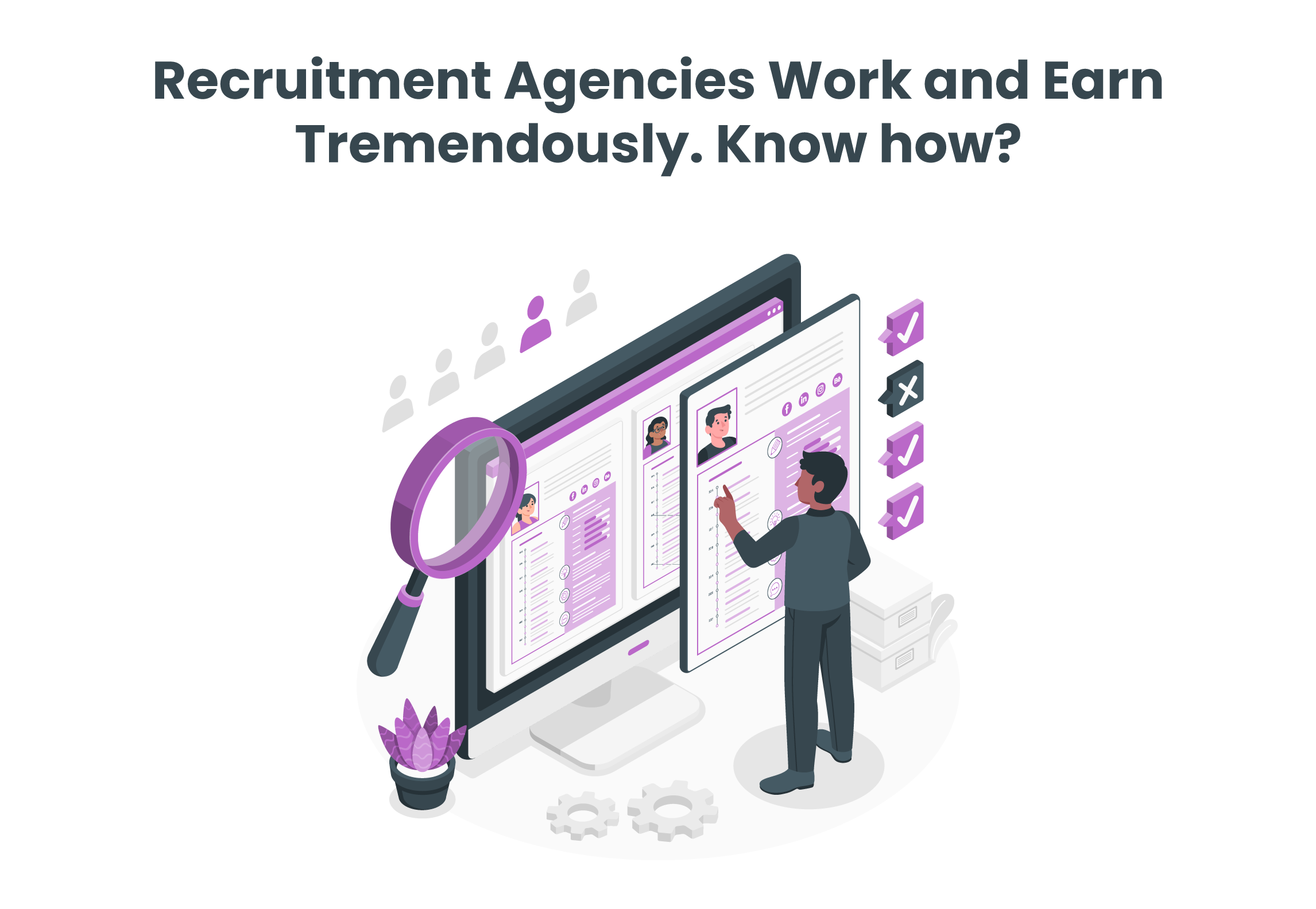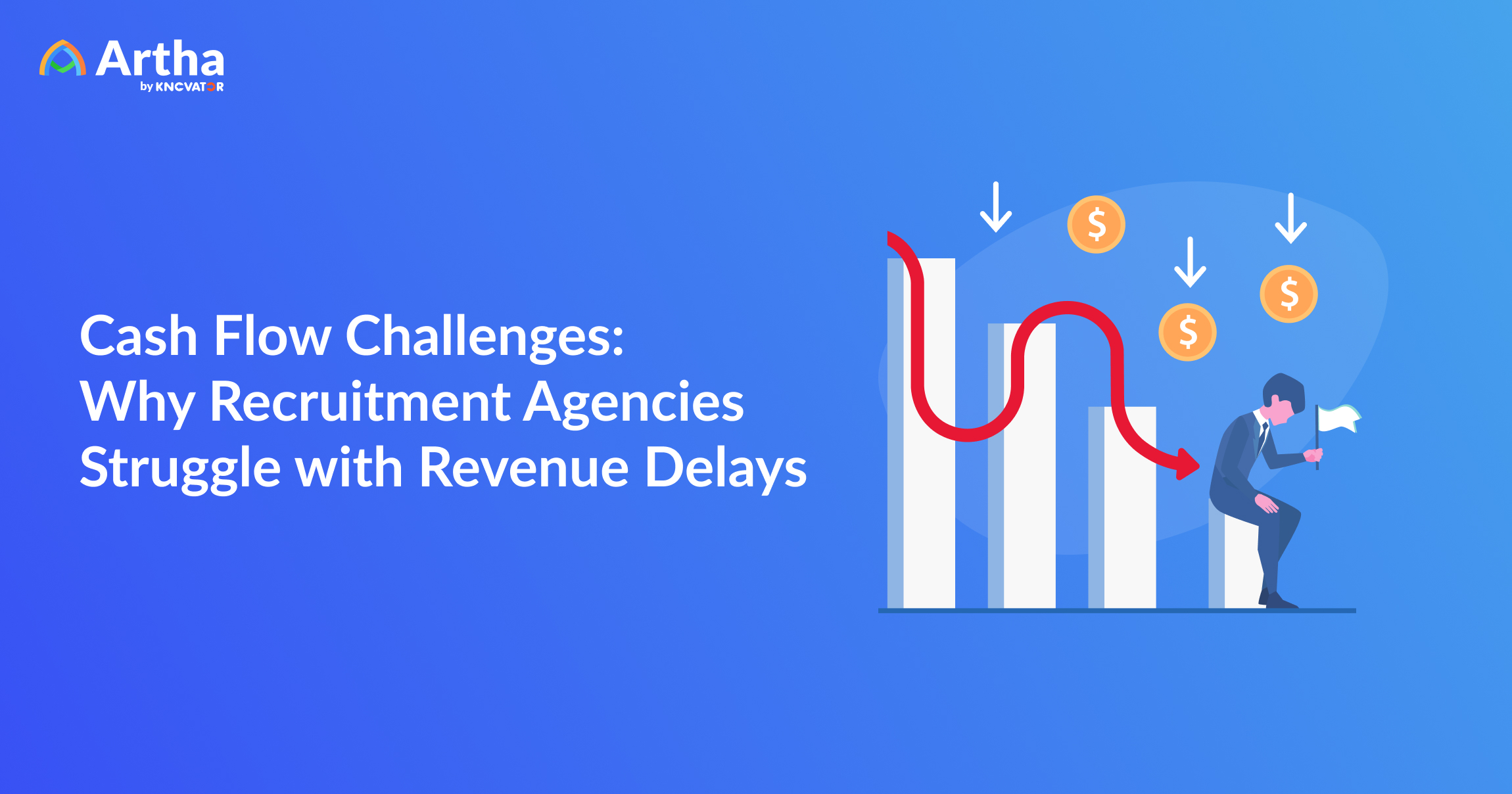The best thing is the candidates get interviewed and selected for the next round by the company they are excited to get the job. It is half the way from the point of view of the candidate, employer and the recruitment agency. The more interesting part comes when the candidate gets the offer letter. The employer will get competent employees, candidates get the job, and the recruitment agency will get their commission on successful placement. The commission of the recruitment agency is counting on the first-year salary of the candidate. Such commission is not from the pocket of the candidate but by the employer.
Recruitment agencies work well in the human resources sector. There are several Job Portals and Recruitment Platforms that help recruitment agencies to manage data and meet the requirements of their clients that could be applicants / hiring companies or both. Knowing when and how to use job portals for recruitment successfully will help you not only reduce the stress of recruitment but also ensure a long-term hire.
Let Artha Job Board show you how recruitment agencies can best utilize job board apps for the best ROI.
How Recruiters make money and Get Paid
There are different types of recruitment agreements between the hiring companies and the recruitment agencies. The commission or fee of the agency depends on the agreement between the company and the agency.
Also Read: What Makes a Recruitment Profit Calculator Essential for Calculating Net Profits
Contingency Fee Structure
Contingency means the recruiter does not get the payment until they successfully recruit an employee for the company. It is entirely performance-based. The commission can range from 15% – 25% of the first year package of the employee hired. The company can work with as many recruiters as the contingency recruiting contracts are not exclusive.
Retained fee structure
When the company works with a retained recruiter, the company has to pay an upfront guarantee fee to the recruiter. When the company pays a headhunter upfront, they prioritize your work above other searches. With retained recruiters, the company is paying for expertise and important hiring. In other words, recruiters get the money before they have even started their work as they give the search their full attention.
The recruitment firm gets paid on a retainer basis when the role of the job seeker requires a particular set of skills and experience.
A retainer is paid throughout the process rather than simply paying a fee upon a successful placement.
The retained recruitment agencies get paid in three parts:
- Up-front.
- Upon producing a shortlist.
- On successful placement.
On receiving the upfront fee, agencies can spend more time searching for the very best candidate.
Container
A container search is a combination of search service models such as contingency and retained. This fee acts as a deposit. It can be reallocated or transferred to a future search, should the close position, or filled by alternative methods.
Container search offers the perks of a Retained Search without the financial risk. The job opening will receive priority treatment and will have access to all feedback and analysis. But the recruiter should place a candidate outside of the company’s efforts. Then only the company will transfer the deposit funds to a future search.
Split placements
There are several split placement options and models for recruiters to consider. There are two separate recruiters from two different recruitment firms. One recruiter represents the candidate, and the other recruiter represents the client company. These two recruiters work together for successful placement. And share the fee that the client company pays. A 50-50 split of the commission is the most common arrangement.
Sometimes, a recruiter does not have the candidate they need to fill a job order. Sometimes, a recruiter has a great candidate but does not have a job order suitable for them. In such a situation, the recruiter takes the help of a split fee recruiting network. With a split network, the recruiter can find the competent candidate or the job order. That is because it is the candidate or job order of another recruiter.
In such a situation, if the two recruiters can make a successful placement, they split the fee.
Contract placements
Many direct-hire recruiters also make contract placements. These recruiters help their clients to fill their temporary vacancies. The recruiters do not receive their fee upfront with contract placements. The recruiter gets their fees from the earning money of the contractor who works for every hour.

How much do staffing agencies charge?
A staffing agency is also known as a recruiting or staffing firm. You can register your recruitment firm with a staffing agency. This way, you can catch many hiring managers looking for competent candidates for their job openings. You can save time and get the opportunities you may not get otherwise with the recruitment management system.
- Temporary worker fees.
- Temp-to-perm fees.
- Permanent placement fees
Related: Reasons to start staffing agency.
Temporary worker fees
The temporary workers are the responsibility of the recruitment agency. It means that the candidates will get their pay from the agency and not from the employer. The agency charges a fee to cover all costs they stand to pay. In this regard, the best recruitment management software can help the recruiting firm to manage all transactions.
A temporary fee consists of
- The basic pay on an hourly or daily basis
- Other costs such as Holiday Pay, Sick Pay, National Insurance etc. A margin allows the agency to make a profit.
- On top of the basic pay, the margin is a percentage that enables the agency to make money.
The percentage depends on the sector and location of the employer.
Temp-to-perm fees
If the candidate works well with their full potential, the employer may change their job type from temporary to permanent. Technically the temporary workers are recruited by the agency. So when the client wants to take workers on full-time, the agency is entitled to charge the transfer fee.
Permanent placement fees
Permanent placement falls under either Contingency Recruitment or Retained Recruitment. As discussed above, the contingency recruiter gets their fee only after the successful placement of the candidate they deliver. While in the retained recruitment, the company has to pay an upfront guarantee fee to the recruiter.
The process of recruitment is tedious and expensive in this competitive market. The goal of the recruitment process is to find the talents to reach the desired outcome. The HR Recruiters paid for delivering the competent candidates to managers, who make the final decision, about hiring a new employee.









